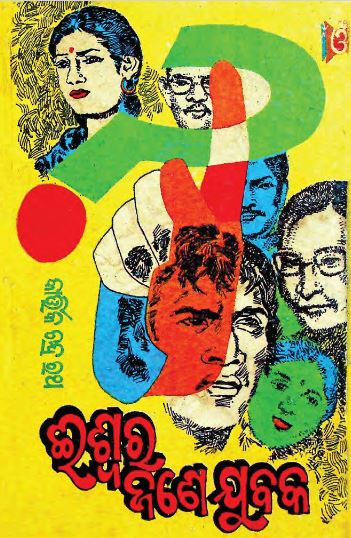Published in two parts in 1979 and 1983, “Iswara Jane Jubaka” is a significant contribution to Odia literature by the esteemed playwright Kartik Chandra Rath. Known for his ability to weave intricate narratives that deeply explore human emotions, Rath’s work is often celebrated for its thematic depth and cultural relevance. “Iswara Jane Jubaka,” which translates to “God Knows Youth,” serves as a poignant commentary on the complexities of youth, spirituality, and societal norms in contemporary Odisha.
The drama unfolds through the lives of its primary characters—young men and women grappling with their identities, aspirations, and the societal expectations that shape their destinies. The title itself sets the stage for an exploration of the intersection between divine guidance and the tumultuous path of youth. Rath crafts a narrative that resonates deeply with the struggles of young individuals, balancing their dreams with the harsh realities imposed by tradition and modernity.
At the heart of “Iswara Jane Jubaka” is a powerful story revolving around a group of young adults in a small Odia town, each with unique aspirations and challenges. The protagonist, a passionate and idealistic young man named Arun, represents the voice of new generations yearning for change. His journey is marked by a confrontation with the established norms set by the older generation, particularly around issues of love, ambition, and spiritual belief.
As the plot unfolds, Rath introduces various sub-dramas that provide a foil to Arun’s character. These include the experiences of his friends, who embody different responses to the pressures of societal expectations. One character struggles with familial obligations that conflict with personal desires, while another grapples with the quest for spiritual fulfillment in a rapidly changing world. Through their stories, Rath evokes a rich tapestry of emotions that reflect the multifaceted nature of youth.
One of the most striking aspects of the play is its engagement with spiritual themes. The concept of divinity and the quest for understanding one’s place in the world underpin the characters’ journeys. Iswara (God) serves as a symbolic presence throughout the narrative, guiding the characters toward self-discovery and revelation. Rath’s incorporation of philosophical dialogues and moments of introspection invites the audience to ponder the deeper meanings of existence, faith, and the journey toward self-realization.
Iswara Jane Jubaka addresses several key themes relevant to both the era of its publication and contemporary society. It delves into the clash between tradition and modernity, exploring how young individuals navigate the expectations of their families and society while forging their paths. The play also examines the quest for identity amidst shifting cultural landscapes, emphasizing the importance of individual choice and self-awareness.
Rath’s language and dialogues are imbued with a lyrical quality that enhances the emotional weight of the narrative. The vivid portrayal of characters and their interactions draws the audience into their world, fostering a deep connection with their struggles and triumphs.
Kartik Chandra Rath’s “Iswara Jane Jubaka” remains a timeless exploration of youth and spirituality in Odia drama. Its rich narrative, emotional depth, and cultural significance continue to resonate with readers and audiences alike. By bridging the gap between tradition and modernity, Rath challenges societal norms while celebrating the evolving identities of youth. Through this drama, he invites us to reflect on our own paths and the divine guidance that shapes our journeys, making “Iswara Jane Jubaka” an essential work in the canon of Odia literature.
Books Info
| Books name | Iswara Jane Jubaka |
| Author | Basant Kishor Sahu |
| No Of pages | 232 |
| Publisher | Orissa Book Store |
| Publication | 2015 |
| Printed At | Guruprasanna Press |
| Distributor | NA |

